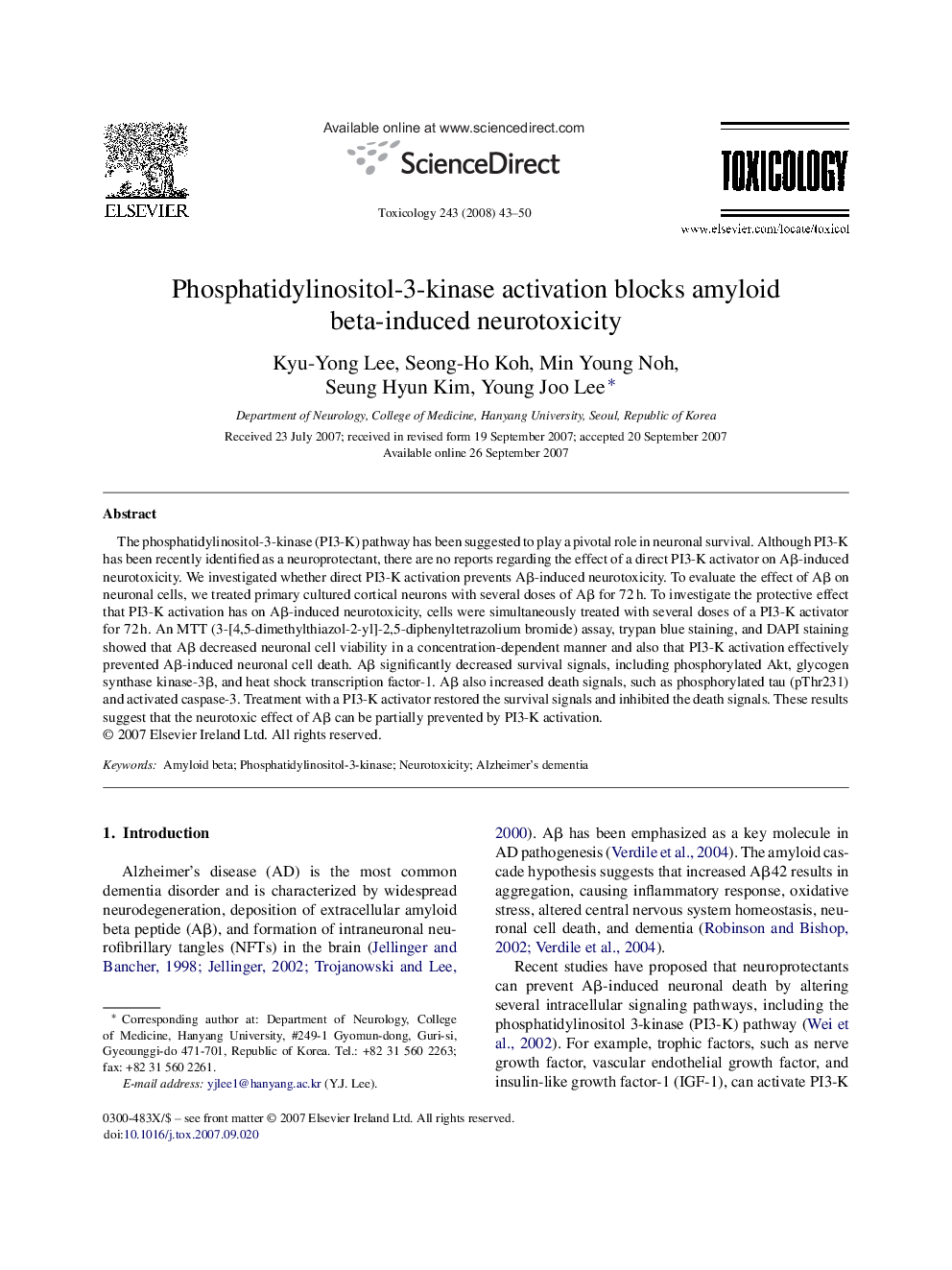| Article ID | Journal | Published Year | Pages | File Type |
|---|---|---|---|---|
| 2597406 | Toxicology | 2008 | 8 Pages |
The phosphatidylinositol-3-kinase (PI3-K) pathway has been suggested to play a pivotal role in neuronal survival. Although PI3-K has been recently identified as a neuroprotectant, there are no reports regarding the effect of a direct PI3-K activator on Aβ-induced neurotoxicity. We investigated whether direct PI3-K activation prevents Aβ-induced neurotoxicity. To evaluate the effect of Aβ on neuronal cells, we treated primary cultured cortical neurons with several doses of Aβ for 72 h. To investigate the protective effect that PI3-K activation has on Aβ-induced neurotoxicity, cells were simultaneously treated with several doses of a PI3-K activator for 72 h. An MTT (3-[4,5-dimethylthiazol-2-yl]-2,5-diphenyltetrazolium bromide) assay, trypan blue staining, and DAPI staining showed that Aβ decreased neuronal cell viability in a concentration-dependent manner and also that PI3-K activation effectively prevented Aβ-induced neuronal cell death. Aβ significantly decreased survival signals, including phosphorylated Akt, glycogen synthase kinase-3β, and heat shock transcription factor-1. Aβ also increased death signals, such as phosphorylated tau (pThr231) and activated caspase-3. Treatment with a PI3-K activator restored the survival signals and inhibited the death signals. These results suggest that the neurotoxic effect of Aβ can be partially prevented by PI3-K activation.
